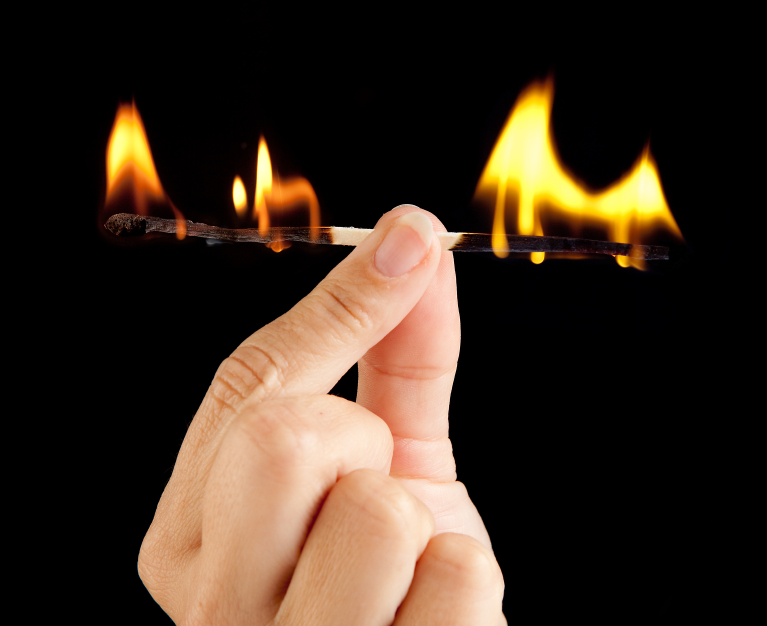One of the signature elements of a Steve Jobs keynote (or “Stevenote”) was his “one more thing…” endings. He would wrap up the presentation, and sometimes start to walk offstage, before turning back and announcing one more product or service. It was an applause line, because we knew something insanely great was coming. FaceTime, movies and TV shows on the iTunes Store, and the announcement he would be Apple’s full-time CEO were all “one more thing” announcements.
Hollywood does the same thing with false endings. Just when you think the conflict is over and everything’s wrapping up, something else happens, and the movie is suddenly half an hour longer. Remember when Pixar used to put outtakes in the credits? And Marvel fans know that the movie isn’t over until the credits have finished.
“One more thing” is an effective and dynamic technique for storytelling and presentations. But your life is not a Stevenote. Trying to fit in “one more thing” can destroy your productivity in the long run.
A week and a half ago, I texted my wife to let her know I was wrapping things up and would be home from work shortly. I got home an hour and a half later. Traffic was fine—I just got caught up taking care of one more thing after another before I left. One more bug report to read. One more email to reply to. One more thing to check. One more, one more, one more…
How do you curb this tendency to keep doing one more thing (just one!) instead of calling it a day? It takes discipline (which I completely lacked that day). Here are some tips:
- Write it down. The simplest thing to do is to write it down instead of doing it. OmniFocus has a quick entry panel that makes this a snap. Or jot a note and toss it in your inbox. Let your trusted system remind you at a more appropriate time.
- Quit before 5:00. If you get off work at 5:00, you need to start wrapping things up before then. Give yourself time to respond to email, update your work journal, and write out your Ivy Lee list for tomorrow. Finish your day strong, and you’ll start tomorrow strong.
- Don’t underestimate the time involved. Most tasks take longer than we think they will. Would you still do that task now if you knew it would take ten minutes instead of two? Write it down and come back later. Know how long it will take to get to your next appointment, whether that’s down the hall, across campus, or across town. (Don’t forget to allow for traffic.)
- Two-minute drills. Give yourself two minutes (or five, or ten, or a whole pomodoro) to just knock out little stuff. Set a timer so the clock doesn’t get away from you.
- Have a reason to leave. This might be a bus to catch, or it could be getting home to play with your kids before dinner. If you have something you’re going to, you’ll waste less time getting there.
- Begin the day with the end in mind. Have a plan. Know what you need to get done today and what can wait. If you know what “done” looks like at 9:00am, you’ll know whether you’ve made it at 5:00pm. You’re more likely to get there by 5:00, because you’ll be more focused throughout the day.
Trying to fit in one more thing before we wrap things up and go home, go to bed, or leave for a meeting can bring a quick burst of satisfaction as we finally cross some of those smaller things off the checklist. The price we pay, however, is that we get home late for dinner, we oversleep in the morning, and we spend less time with family and friends. What’s urgent will start to take over, pushing what’s important out to the sidelines.
Steve Jobs’ “one more thing” announcements were incredibly intentional and very well planned out. You should be that intentional in planning your day. Things won’t go according to plan—they never do—but with a plan and a purpose, your day will go better than it otherwise would, and you’ll have the time, resources, and energy to do insanely great things.
Question: When do you wrap things up and call it a day? Share your thoughts in the comments, on Twitter, LinkedIn, or Facebook.

